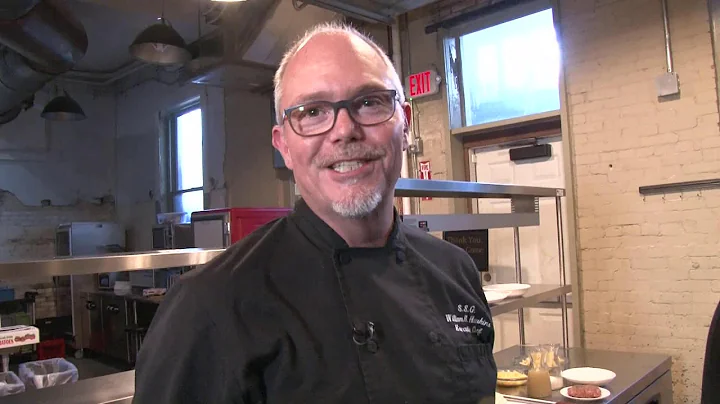Polite and Engaging Ways to Express Your Desires
Table of Contents:
- Introduction
- The Importance of Being Polite
- Different Ways to Say "I Want"
- Polite Ways to Request Something
- Responding to an Offer
- Expressing Desires with "I'd Like" and "I Would Like"
- Using "I Wouldn't Mind"
- Suggesting with "I Could Go For"
- Expressing the Need with "I Could Do With"
- "I Fancy" - A British Expression
- Feeling in the Mood with "I'm in the Mood For"
- Using "I Feel Like"
- Very Polite Requests with "Is There Any Chance"
- Strong Expressions with "Dying For" and "Craving"
- A Hankering for Something
- Conclusion
- Frequently Asked Questions
📚 The different ways to say "I Want" in English
Introduction
In everyday conversation, we often find ourselves expressing our desires or requests. However, simply saying "I want" can sometimes sound rude or demanding, depending on the context. In this article, we will explore various ways to say "I want" in English that are more polite and considerate. By using these alternative expressions, you can effectively communicate your desires without coming across as entitled or impolite.
The Importance of Being Polite
Before delving into the different ways to express your wants, it's crucial to understand the importance of politeness. Politeness not only creates a positive and respectful atmosphere but also helps you build better relationships with others. By using the appropriate expressions, you can effectively convey your desires while maintaining a considerate and friendly demeanor.
Different Ways to Say "I Want"
1. Polite Ways to Request Something
When you find yourself in a situation where you want something, such as in a coffee shop or restaurant, it's essential to use polite language. Instead of bluntly saying, "I want this," opt for more courteous alternatives. For example, you can say, "Sorry, could I get a coffee?" or "Sorry, can I have a carrot cake, please?" The use of "sorry" and phrases like "could I" and "can I have" add politeness to your request.
2. Responding to an Offer
Sometimes, someone may offer to get something for you. In such cases, it's important to respond politely. Instead of simply saying "I want," you can use expressions like "I'd love a coffee" or "I would like a coffee." The subtle difference in these expressions adds more politeness and shows appreciation for the offer. Pay attention to the context and use the appropriate expression accordingly.
3. Expressing Desires with "I'd Like" and "I Would Like"
In formal settings, such as at a restaurant or a coffee shop, you can use the phrases "I'd like" or "I would like" to express your desires. For instance, you can say, "Oh, I'd love a coffee" when responding to a waiter. On the other hand, when a friend offers you something at their house, you can say, "I wouldn't mind a coffee if that's okay." The use of "I'd like" and "I would like" adds a touch of formality or informality depending on the context and creates a friendly atmosphere.
4. Using "I Wouldn't Mind"
"I wouldn't mind" is a useful expression when you want something or have a preference. It conveys a nonchalant attitude while still expressing your desire. For example, you can say, "I wouldn't mind a pineapple juice right now" when you're craving a refreshing drink. However, it's important to note that you cannot use this expression when making a request. Stick to using it for expressing personal preferences or desires.
5. Suggesting with "I Could Go For"
"I could go for" is a great way to suggest something when you're not occupied with any specific activity. It often occurs when a thought about food or drink crosses your mind randomly, and you feel a sudden desire for it. For instance, you can say, "You alright? What you doing? Yeah, I could go for a pizza, what about you?" This expression adds a casual and spontaneous tone to your desire.
6. Expressing the Need with "I Could Do With"
Another way to convey your want or need for something is by using the expression "I could do with." This phrase indicates that you would benefit from or appreciate the occurrence of something. For example, if you're feeling sad, you can say, "I'm feeling a bit sad. I could do with some chocolate." Additionally, it can also convey a necessity or requirement. For instance, "My room could really do with a clean."
7. "I Fancy" - A British Expression
If you're looking for a more British way to say "I want," you can use the expression "I fancy." This phrase is commonly used in British English and adds a touch of sophistication and flair to your statement. For example, you can say, "I really fancy a pizza." It's important to note that this expression is not as commonly used in American English.
8. Feeling in the Mood with "I'm in the Mood For"
When you're in a particular mood and have a strong desire for something, you can say "I'm in the mood for." This expression conveys a specific feeling or craving at the moment. For example, if it's a hot day, you can say, "It's so hot today. I'm in the mood for a cold shower and some sleep." It allows you to express your desire based on your current emotional state.
9. Using "I Feel Like"
Similar to the previous expression, "I feel like" allows you to convey your desire for something or someone. For example, you can say, "I feel like a pizza" when you have a strong craving for pizza. Additionally, it can also be used to express emotions or thoughts about oneself, such as "I feel stupid." Remember to use the appropriate verb form and context when using this expression.
10. Very Polite Requests with "Is There Any Chance"
When you want to make a very polite and indirect request without sounding demanding, you can use the phrase "Is there any chance." This expression adds a level of formality and consideration to your request. For example, you can say, "Oh, sorry. Is there any chance I can get some water, please?" or "Is there any chance I could have some butter for my coffee?"
11. Strong Expressions with "Dying For" and "Craving"
If you have an incredibly strong desire or craving for something, you can use the expressions "dying for" or "craving." These expressions add emphasis and intensity to your desire. For example, you can say, "I'm dying for a carrot cake" or "I've got a craving for cucumber dipped in pineapple juice." These expressions indicate a longing that is so intense it may even cause physical discomfort.
12. A Hankering for Something
Lastly, you can use the expression "hankering" to convey a quick and light-hearted desire for something. This expression is used in a playful and jokey manner. For example, you can say, "I don't know about you, but I've got a hankering for some pizza with pineapple on it." It's important to note that this expression is not used in a serious or formal context.
Conclusion
When it comes to expressing your wants in English, there are numerous alternatives to simply saying "I want." By using these different expressions, you can convey your desires in a more polite, considerate, and engaging manner. Remember to choose the appropriate expression based on the context and relationship with the person you're speaking to. Using polite and varied language not only helps you communicate effectively but also contributes to building positive and respectful connections with others.
Highlights:
- Discover the various ways to say "I want" in English without sounding rude or demanding
- Learn how to politely request something using phrases like "Could I get" and "Can I have"
- Understand the importance of being considerate and polite in conversations
- Explore expressions such as "I'd like," "I wouldn't mind," and "I could go for" to express desires and preferences
- Find out how to respond to offers with grace using phrases like "I'd love" and "I would like"
- Familiarize yourself with British expressions like "I fancy" and "I'm in the mood for"
- Learn how to make very polite requests using the phrase "Is there any chance"
- Discover strong expressions like "dying for" and "craving" to convey intense desires
- Understand the connotations of using the expression "hankering" in a playful and lighthearted manner
- Enhance your language skills and build better relationships with others through polite and varied expressions







